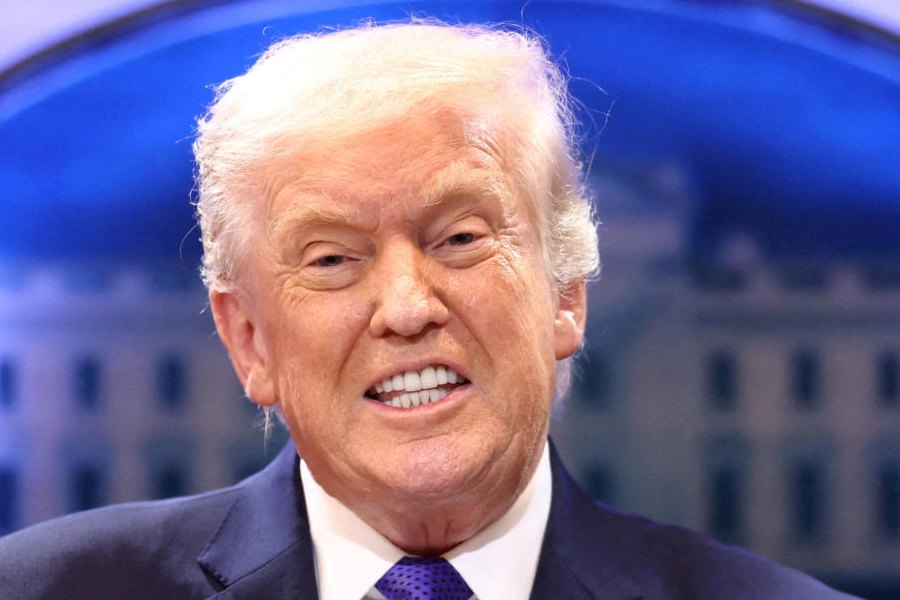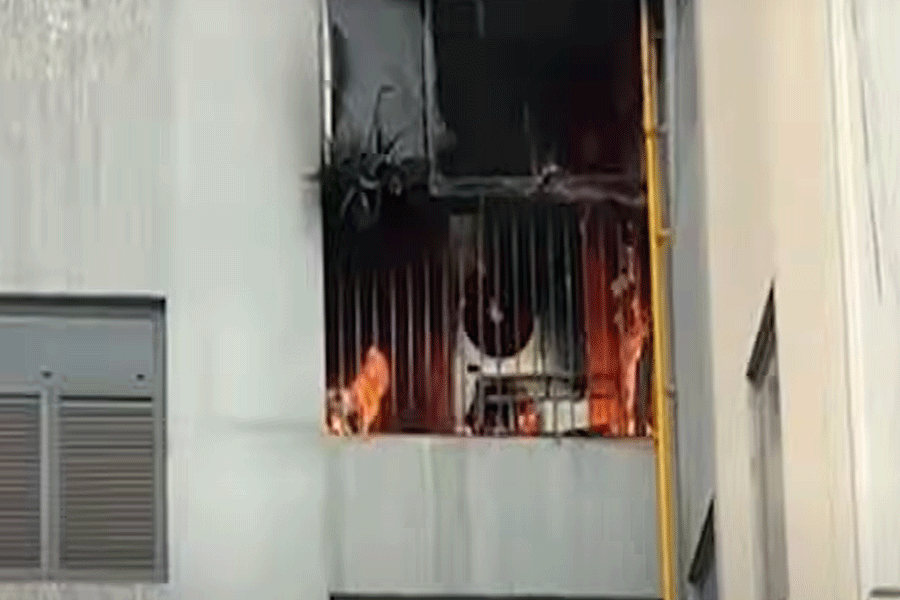 |
 |
| Deepak Kumar (top) and Cynthia Robinson, the widow of Michael Johnson Sr |
New Delhi, July 22: The plight of a cancer patient in India who had summoned the stamina to challenge the tobacco industry in a consumer forum five years ago contrasts with the multi-billion-dollar damages awarded by a jury last week to a smoker’s widow in the US.
Deepak Kumar, 64, in Mumbai and Cynthia Robinson in the US had independently filed cases on two sides of the world, claiming sections of the tobacco industry had not appropriately warned consumers about the health hazards and risks associated with smoking.
The Consumer Disputes Redressal Commission in Mumbai had three years ago dismissed Kumar’s complaint for the award of compensation of Rs 1 crore from the ITC, but fined him Rs 20,000 for causing delay in proceedings.
In Florida on Friday, a jury awarded $23 billion (Rs 1.38 lakh crore) to Robinson who had claimed the tobacco company RJ Reynolds had concealed the dangers and addictive nature of tobacco.
Kumar, a former customs commissioner, lost his larynx, or voice box, in 2008 to cancer of the vocal cord and a part of his tongue earlier this year to oral cancer.
“In some countries, at least, tobacco companies have to pay for their sins,” Kumar conveyed to The Telegraph today, referring to the US verdict.
Kumar communicated with this reporter through a written response because he is unable to speak. He has to breathe through a tube inserted into his neck and uses a nasal tube to consume food.
Since Kumar lost his case in 2011, dozens of more patients with cancers associated with the use of tobacco have rallied behind a non-government organisation that calls itself the Voice of Tobacco Victims, but no one has dared challenge the tobacco industry again.
“What Kumar experienced was shocking,” said Pankaj Chaturvedi, a senior surgeon and an oncologist at the Tata Memorial Hospital, Mumbai.
Chaturvedi said it was only in 2008 that the government changed the rules, making it mandatory for cigarette manufacturers to print warnings on cigarette packets that smoking causes cancer.
While some patients at times do discuss the option of going to court, Chaturvedi and other members of the Voice of Tobacco Victims say the complexity of the legal system in India and the tales of long waits for rulings appear to discourage patients.
Kumar, who was diagnosed with cancer of the larynx in 2008, had started smoking when he was 16. In an affidavit filed in court in 2009, he said he became addicted to the habit and began to start and end his days with cigarettes, at times consuming 40 cigarettes in a day.
He said he had been influenced by the ITC’s advertisement campaign, including an image of “a beautiful girl and a handsome boy sitting together with a packet of Wills Navy Cut lying in between them and the slogan: ‘made for each other’”.
Kumar said in his affidavit that the “ill-effects of tobacco and the fact that cigarette smoking causes cancer had not been so well canvassed as is the case today (in 2009).”
The company’s lawyer contended that Kumar had not produced any receipts to establish that he had actually purchased ITC-produced cigarettes and there was thus no proof that he had ever smoked ITC-produced cigarettes. The lawyer said there was no evidence that Kumar had got cancer only on account of smoking ITC cigarettes and that smoking was not the only cause of cancer — there are multiple causes.
The company said through its lawyer that it had never broken any law. The required statutory warning was printed on all cigarette packets as required.
Kumar’s lawyers said the addictive nature of tobacco had been proven beyond doubt and multiple studies had shown that smoking is a cause of cancer of the larynx. They also argued that cigarettes were an inherently defective product.
But the consumer forum held that the defective nature of cigarettes had not been proven under the consumer protection act.
“Cancer overwhelms patients so much that they’re unable to also engage in courts,” Farida Poonawala Tata, a member of Kumar’s legal team, said. “But if we had obtained a positive ruling, it would have encouraged more patients.”
In the written response, Kumar said he considered himself a victim of both tobacco and the consumer protection system that fined him.
“On the one hand, the consumer affairs ministry tom-toms about the ease of filing complaints before consumer forums just by writing a letter,” Kumar wrote. “But when someone files a complaint, the person is tried to be thrown out on some technicality.”










